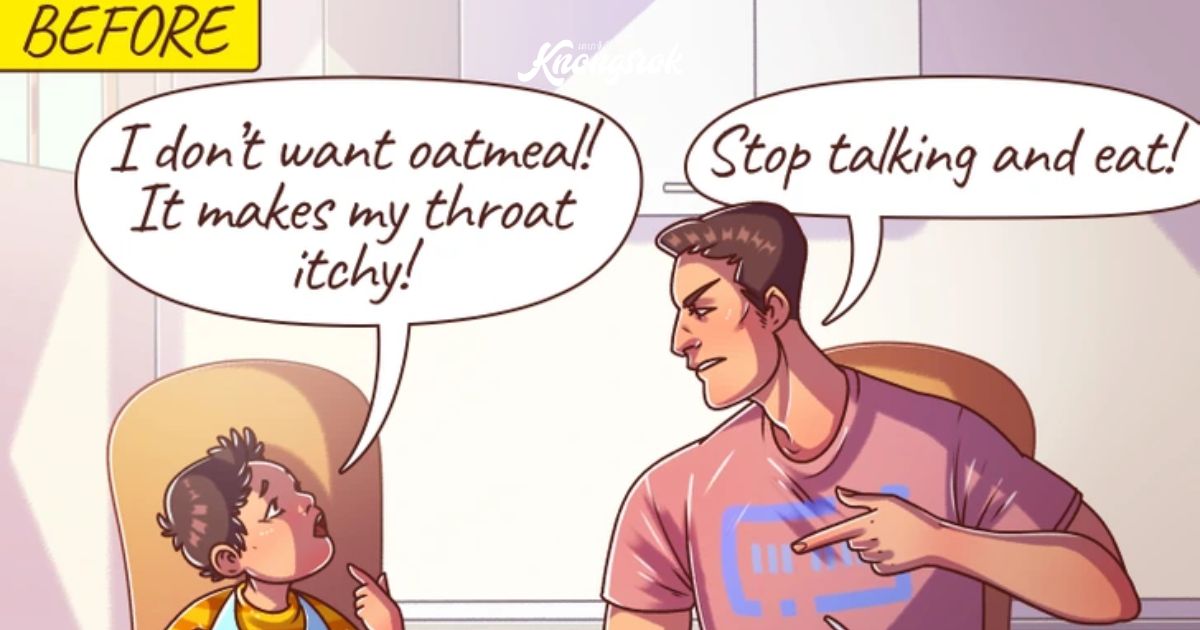15 Reasons Kids Might Not Feel Close to Their Parents and Why They Shouldn’t Blame Themselves
Parent-child relationships are complex and can be influenced by many factors, some of which are beyond anyone’s control. If a child or young adult feels distant from their parents, it’s important to understand that there are valid reasons this may happen—and it’s not always anyone’s fault. Here are 15 reasons why kids may not feel close to their parents, along with reassurance that they shouldn’t blame themselves.

1. Different Communication Styles
Explanation: Parents and children may have vastly different ways of expressing themselves, which can lead to misunderstandings and frustration.
Why It’s Not Their Fault: Communication styles are often influenced by personality and upbringing. Kids aren’t responsible for a gap they didn’t create.
2. Unresolved Conflicts or Past Tension
Explanation: Lingering tension from past arguments or misunderstandings can create emotional distance over time.
Why It’s Not Their Fault: Everyone makes mistakes in relationships, and it takes effort on both sides to work through conflicts. Kids can’t resolve everything alone.
3. Generational and Cultural Differences
Explanation: Different cultural values or generational perspectives can lead to disconnects in how kids and parents view the world.
Why It’s Not Their Fault: Cultural and generational differences are natural and can be difficult to bridge. Kids shouldn’t feel guilty for being a product of their time.
4. Emotional Unavailability of a Parent
Explanation: Some parents may struggle with expressing love or warmth due to their own issues, such as mental health challenges or unresolved trauma.
Why It’s Not Their Fault: Kids can’t change a parent’s emotional struggles. It’s not up to them to “fix” or compensate for what’s missing.
5. High Expectations and Pressure
Explanation: Parents with high expectations might unintentionally make their children feel inadequate or distant.
Why It’s Not Their Fault: Kids can’t be responsible for fulfilling every expectation. A healthy relationship should allow them to be themselves.
6. Different Interests and Hobbies
Explanation: When parents and children don’t share similar interests, it can be challenging to find common ground and spend quality time together.
Why It’s Not Their Fault: People are unique, and having different interests doesn’t mean a lack of love. Kids shouldn’t feel guilty for being true to themselves.
7. Emphasis on Discipline Over Affection
Explanation: Parents who focus mainly on discipline and correction may not always provide the warmth and support children need.
Why It’s Not Their Fault: Children need both structure and love. The balance in this dynamic is up to the parents, not the child.
8. Parental Stress and Life Challenges
Explanation: Financial, work, or relationship stress can consume parents, leaving them emotionally distant.
Why It’s Not Their Fault: Parental stress is out of a child’s control. Kids should know they’re not responsible for solving adult problems.
9. Differences in Personality
Explanation: Sometimes, personalities don’t naturally “click,” even between parents and kids.
Why It’s Not Their Fault: Personality traits are inherent. Kids aren’t responsible for how they’re wired or for how well they “mesh” with their parents.
10. Parental Control and Micromanagement
Explanation: Parents who are overly controlling can unintentionally stifle their children, creating a desire for distance.
Why It’s Not Their Fault: Independence is part of growing up, and it’s natural to want autonomy. Kids shouldn’t feel bad for seeking space.
11. Parental Mental Health Issues
Explanation: A parent’s mental health challenges, such as depression or anxiety, may make it hard for them to form close bonds.
Why It’s Not Their Fault: Kids are not equipped to manage or understand adult mental health issues fully, and they shouldn’t have to carry that weight.
12. Sibling Dynamics and Comparison
Explanation: If parents frequently compare siblings or play favorites, this can foster resentment and create emotional distance.
Why It’s Not Their Fault: Kids shouldn’t be compared to one another. Each child deserves to be valued individually, regardless of sibling dynamics.
13. Divorce or Separation
Explanation: Divorce and separation can make it difficult for children to feel close to one or both parents, especially if there’s tension involved.
Why It’s Not Their Fault: Divorce is a parental decision and can create challenges beyond the child’s control. Kids shouldn’t feel responsible for family structure.
14. Inconsistent or Unpredictable Parenting
Explanation: Inconsistency in rules, discipline, or emotional availability can leave kids feeling confused or disconnected.
Why It’s Not Their Fault: Consistency is a parent’s responsibility, and children need stability. Kids should never feel they have to guess how their parent will behave.
15. Lack of Physical Affection or Verbal Affirmation
Explanation: Not all parents express affection openly, which can lead children to feel unloved or distant.
Why It’s Not Their Fault: Children naturally crave love and validation. It’s up to parents to meet this need, and kids shouldn’t blame themselves if they feel neglected.
Feeling disconnected from parents is not uncommon, and kids shouldn’t feel guilty for experiencing these feelings. Recognizing these factors can help foster understanding and self-compassion, as it’s not up to kids to repair the relationship on their own. By realizing these causes, young people can focus on building supportive relationships with friends, mentors, or other family members who provide the love and understanding they need.










